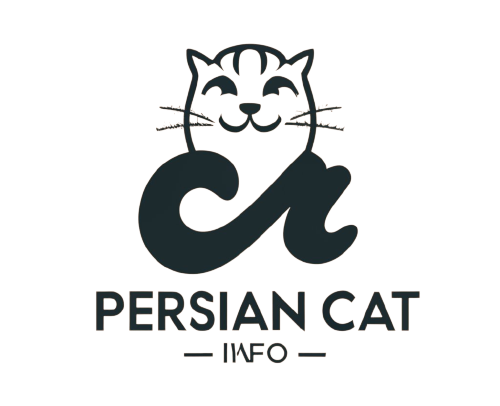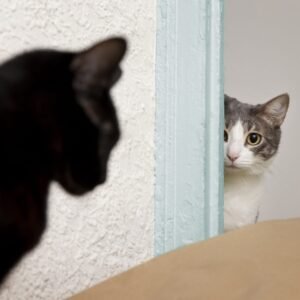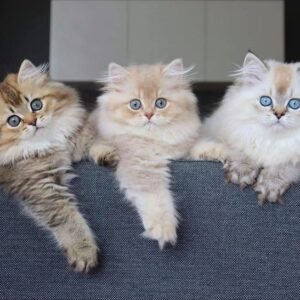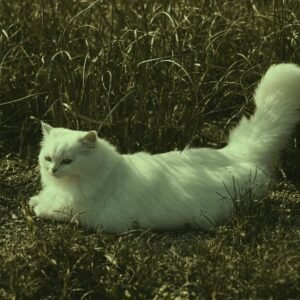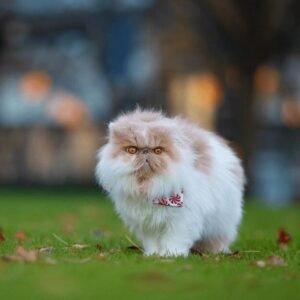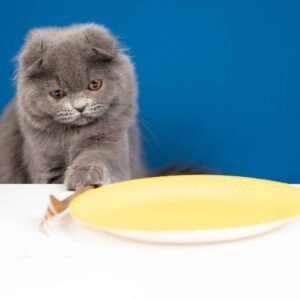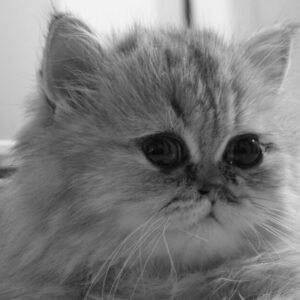It is not uncommon for cats to be picky about their food at times. Are Persians any different? Yes, Persian cats can be a fussy eater because of their flat faces and their mood swings.
Keeping your cat healthy and happy requires that you know what to feed it and how to feed it to keep it happy and healthy. Persian cats can observe slight changes in their food and how food is served to them. How food is served to them, and what type of bowl you use for them, can highly affect their appetite.
Let’s dive deep into the article.
Best supplements for Persian cats
To know what is the best food for your cat, note the essential factor for the right meal.
High protein and low carbohydrate
Persian cats are obligate to carnivorous, animal protein is an essential supplement that your cat needs. Animal protein helps to maintain strength and their muscular body.
The ideal diet for your Persian cat must be rich in proteins and low in carbohydrates. High Carbohydrates can damage your cat’s stomach because cats cannot digest starch and cause symptoms such as vomiting, diarrhea, and constipation.
Low-allergen ingredients
Persian cats are allergenic due to their flat faces, these cats require a diet that is free from any type of allergens. Persian cats with allergies can have more trouble with their eyes tearing. Food with low-allergen meat or fish as its main ingredients will help lessen the chance of allergies.
Take care of your cat’s grooming because allergens can cause serious breathing problems.
Balanced dietary fiber
Persian cats are known for their long hair, and grooming themselves prevents them from hairballs they swallow these hairs into their stomach. By which hairballs started accumulating in their stomach rather than being excreted.
Make sure that your cat’s diet is rich in fiber, which is useful for the digestion of food. The cat food for hairball care contains twice as much dietary fiber as regular foods.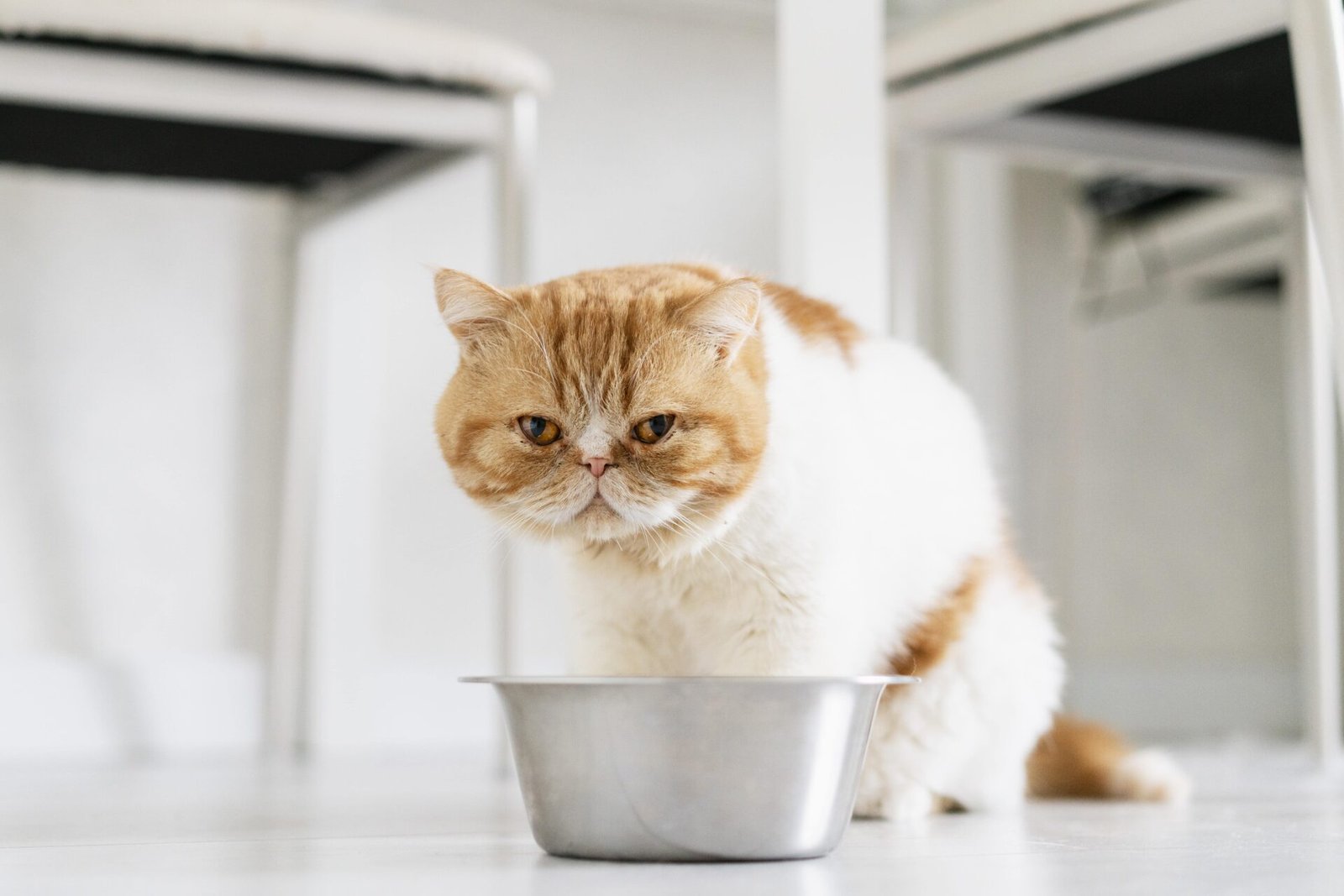
Division of Dietary Fiber: There are two types of dietary fibers; water-soluble nutritional fiber and insoluble dietary fiber. Choose a brand that contains both soluble and insoluble dietary fiber. Your cat’s diet must be well-balanced and rich in proteins.
Water-soluble fiber: This fiber is easily dissolved in water. It lowers blood cholesterol levels, suppresses postprandial blood glucose spikes, and increases the number of good bacteria in the intestines.
Insoluble fiber: such as cellulose, is not digested by the stomach and tends to swell when it contains water, increasing the bulk of the stool and its size. Be careful with the amount of insoluble fiber you give your Persian, as taking in too much can cause constipation in these cats.
Insoluble dietary fiber absorbs water and increases your cat’s stool size for comfortable defecation. Insoluble dietary fibers contain carbohydrates, such as wheat bran.
How Much to Feed Your Persian
Persian cats are known for their luxurious long hair but like other cats, Persian cats are less smart and are energetic on 180–230 calories. Mostly these cats need not a high quantity of food but cats that are pregnant and lactating they need more than usual.
Due to the slumber cats, they mostly sleep and can be prone to obesity and overweight. Schedule your Persian cat feeding time and make a proper playtime with them. Train them as they come on a time for play and have a proper time to sleep.
How to Keep a Fussy Eater Eating
Choose a spot for your Persian to eat at. These cats are sensitive to change. Even changing to a new mat or tray where their dishes sit can disrupt their schedule and make them stop eating.
- Maintain a spotless Persian cat dish. You can blend leftover wet food with fresh for your next meal or throw away any wet food that your Persian may have left behind. Hard food can be kept, but the next day it should be modified or added to.
- Feed at a scheduled hour. It’s best to stick to the feeding schedule after your cat has adapted to it.
- Ensure that your Persian cat has access to fresh water each day.
- Inside the house are guests. Keep visitors from seeing your cat eat. If the visitor is someone your cat doesn’t know well, this may upset them and make them less hungry.
- food selections. Your Persian cat may live longer if you feed them high-quality food. Try giving them cat food made naturally.
- canned cat food. If their food is canned.
Persian Cats Natural Food
Stuff that is present in your home, Can you use natural food for your Persian cat? Yes, some natural foods are good for your Persian cats. Here is the list of things that are present in your home and are useful for your cat:
- Cheese
- Rice
- Salmon
- Turkey and Chicken
- Cauliflower and Broccoli
- Green Beans
These are good but not overcooked, which leads to loss of nutrition present in them.
Homemade cat food
If your Persian cat is particularly finicky or has health issues, you can make their food. Many people search for cat food recipes, but you can ask your vet or even find a tutor to teach you what is best for your Persian. Most cats accept homemade food readily. However, it will always depend on the food chosen and the cat’s palate.
Raw diet: this diet provides the cat with raw food that has been chopped or ground. It is important to keep in mind that the meal should be frozen before being fed. This is done to prevent infection or parasites.
Cooked homemade diets: To prevent viruses or parasites. Cook or sear any meat you are offering.
Is Fancy Feast good for Persian cats?
Fancy Feast is a brand of food within the Purina pet food company. Purina follows the feeding trials as required by the Association of American Feed Control Officials (AAFCO) standards. This means that their foods have passed at least the minimum standards for pet food requirements.
Fancy Feast isn’t a ‘bad’ food, in fact, it’s one of the few canned foods my own cats eat – but in the end, it’s between you and your veterinarian to discuss if it’s the right fit for your cat.
Conclusion
If your Persian cat has food issues, then there is no change in your dishes, bowls, and the environment. Another reason your cat fusses about eating is that they are upset be they have digestive issues. So visit your vet and regularly check your cat’s food schedule.
